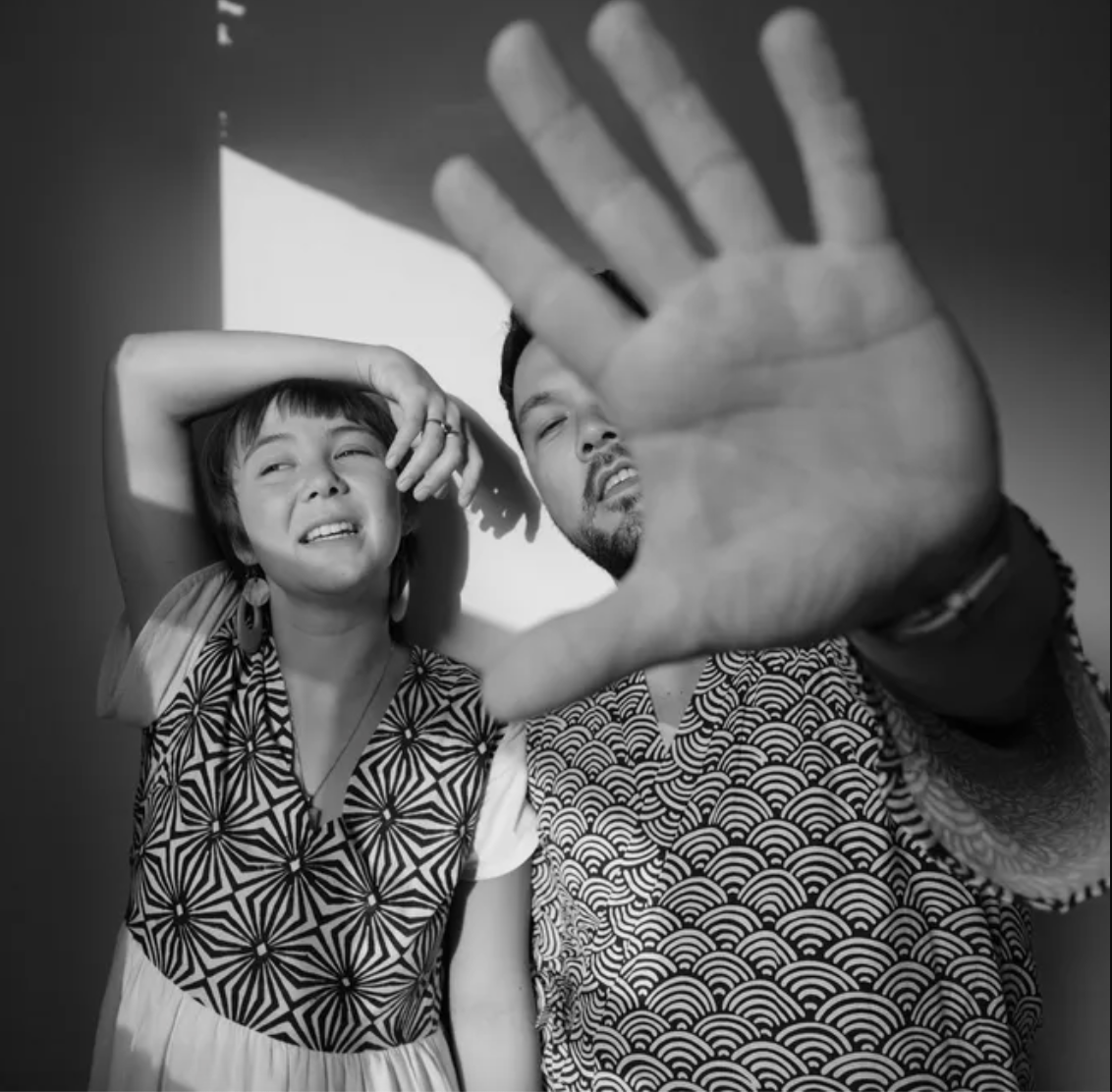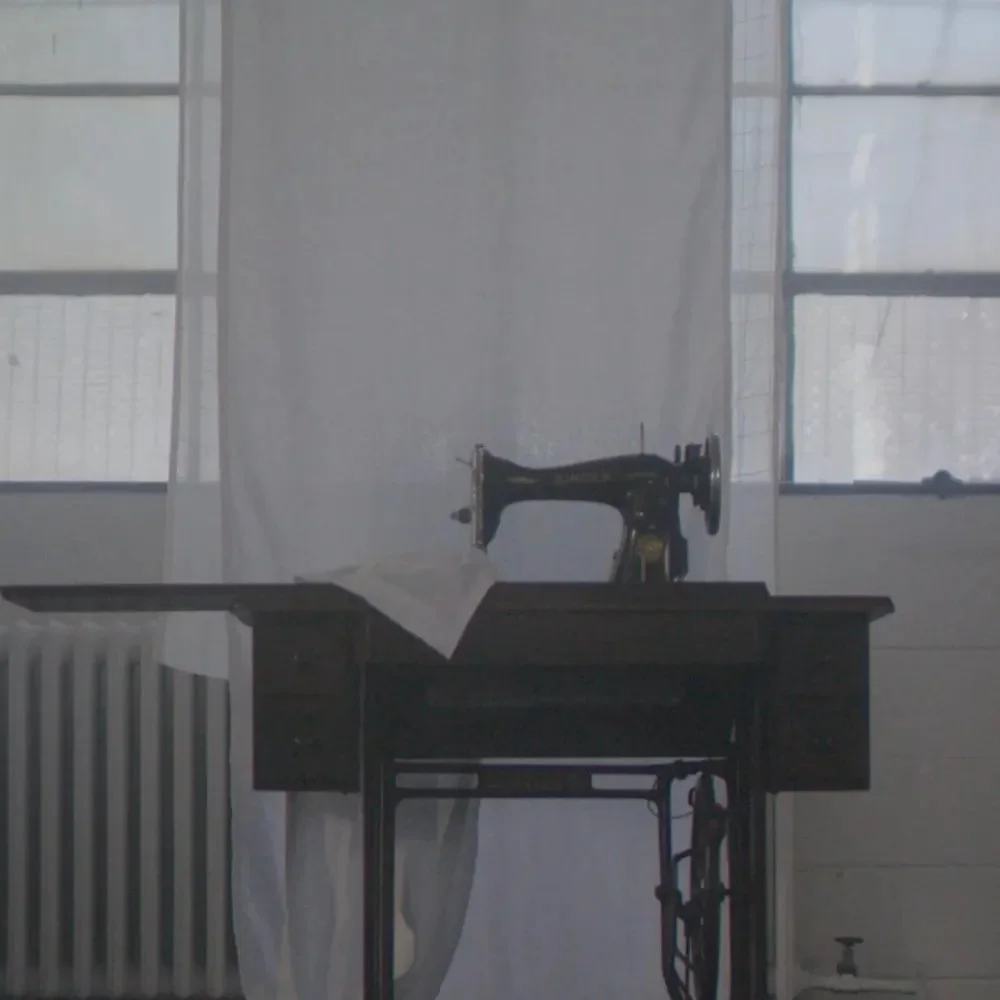Kintsugi draws on personal histories of Japanese internment at Powell Street Festival
Interactive multidisciplinary art installation by Annie Sumi and Brian Kobayakawa has an heirloom Singer sewing machine at its heart
Annie Sumi (left) and Brian Kobayakawa.
Powell Street Festival presents Kintsugi exhibition at Centre A on August 3 and 4 and Kintsugi musical performance on August 3 from 12 pm to 12:30 pm on the Street Stage
A GENERAL ELECTRIC push-button radio, a gramophone and a box of records, a wooden wagon with the wheels attached, a double-hinged fold-up ironing board, a tarnished mirror, a well-used collection of garden tools, and a set of drawers: they’re just some of the items that the Government of Canada confiscated from Annie Sumi and Brian Kobayakawa’s ancestors through the internment of Japanese-Canadians during the Second World War beginning in early 1942. The federal government then auctioned off the items, the names of which also show up as lyrics to a song called “Chattels” from Kintsugi, an interactive, multidisciplinary art installation that the two artists are remounting at the 2024 Powell Street Festival.
Kobayakawa’s father and Sumi’s grandfather were among the 22,000 Japanese-Canadians who were interned across the country. Kobayakawa’s father was sent to Slocan while Sumi’s grandfather went to Rosebery, both communities in the Kootenays. The internment lasted until 1949.
Kintsugi.
Here’s how Kintsugi works: Audiences are invited to pump the foot treadle of an heirloom Singer sewing machine—another object that was taken by the government and that belonged to Kobayakawa’s grandmother, Hisa—to kickstart the playing of a cycle of songs and videos. The visuals consist of an overlapping collage of present-day footage of the internment sites where Sumi’s grandfather and Kobayakawa’s father were placed as well as images of old, cut-up letters written by the government to families about their material possessions. Then there are playful animations of things like birds, trains, rivers, and mountains created by the shadow puppeteers at Mind of a Snail that are projected onto a piece of fabric that runs from the sewing machine to the ceiling.
“It’s a bunch of songs that live inside my grandmother’s sewing machine which has some speakers and a projector attached to it,” Kobayakawa tells Stir on the line from his Toronto home. “It has been rigged up with sensors and magnets so when you move the pedal of the sewing machine it makes the music play and the animations play as long as you keep pedalling, and it stops when you stop.
“I’ve known that sewing machine for my whole life; it was in my parents’ basement while I was growing up as a child,” he adds. “But I didn’t know the significance of it until we started researching our family histories for this project.”
Kintsugi takes its name from a Japanese practice of honouring and celebrating the repair of what was once broken. On August 3, Sumi and Kobayakawa will put on a stripped-down performance of the songs live on the Powell Street Festival’s Street Stage.
The piece is a departure from both artists’ usual projects. Kobayakawa spends most of his time touring with acts such as Serena Ryder using the moniker Brava Kilo. As a founding member of The Creaking Tree String Quartet, he has earned four Juno nominations for four albums. He also composes music for films, having recently completed the score for Jackals & Fireflies directed by Oscar-winning artist Charlie Kaufman. Sumi is a folk artist whose most recent collection of songs, Solastalgia, was released in October 2021. She has acquired nominations for New/Emerging Artist of the Year at the Canadian Folk Music Awards, among other honours.
Kintsugi started out as a commission by the Toronto-based Japanese Canadian Cultural Centre for a concert. The project morphed during COVID when the artists had to find new ways of sharing music that didn’t involve a typical performance setting.
“It was in the pandemic when we were able to have the time and space to lean in even further,” Kobayakawa says. “I had an interest in music technology and installation art and just kind of a loose feeling of wanting to make some sound art for a gallery space rather just doing music for performing and recording, and it all sort of came together.
“It became really personal,” he adds. “Neither of us had used our family histories as fodder for songwriting before, and it gave us a safe space to talk about these things. Both of us grew up without a lot of Japanese Canadian community around us, and so a lot of these conversations we were having were the first time either one of us had been able to talk to someone outside our family about this experience.”
The song “Stone Between the Lips”, for instance, is about avoiding that tongue-tied feeling that comes with talking about hard things and finding a safe space to speak about traumatic family stories, Kobayakawa explains. The pair acquired thick files of their families’ histories from a group called Landscapes of Injustice, which was digitizing historical information about the internment during Kobayakawa and Sumi’s research phase. Included in the materials were archival recordings of Sumi’s great-grandfather, Choichi Hando Sumi, reading his haiku poetry, which also forms part of Kintsugi’s score.
“We were trying to embody that feeling we were having of ‘here’s a safe place to talk about these feelings,’” Kobayakawa says, “and ‘here’s a safe place to celebrate finding a community to talk about these things with.’” ![]()















